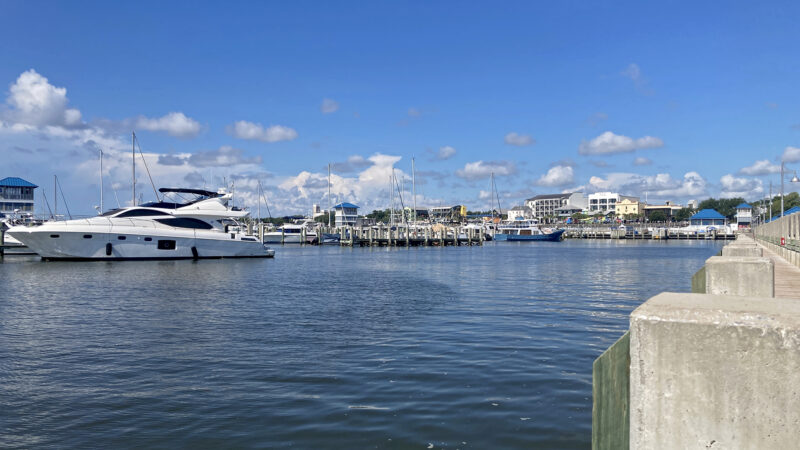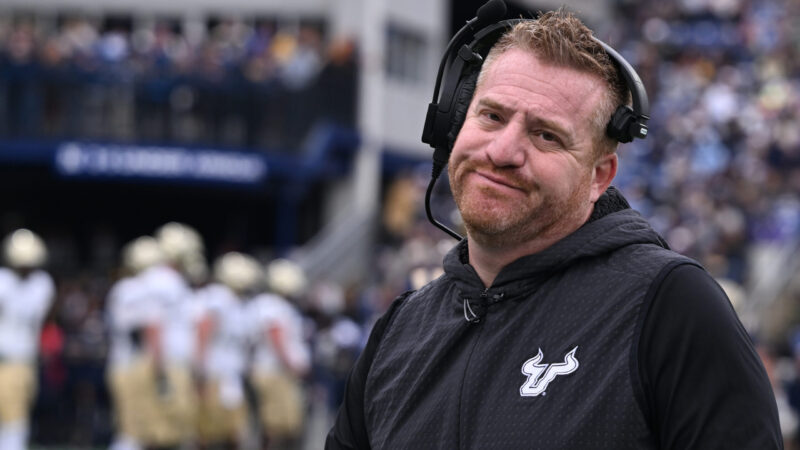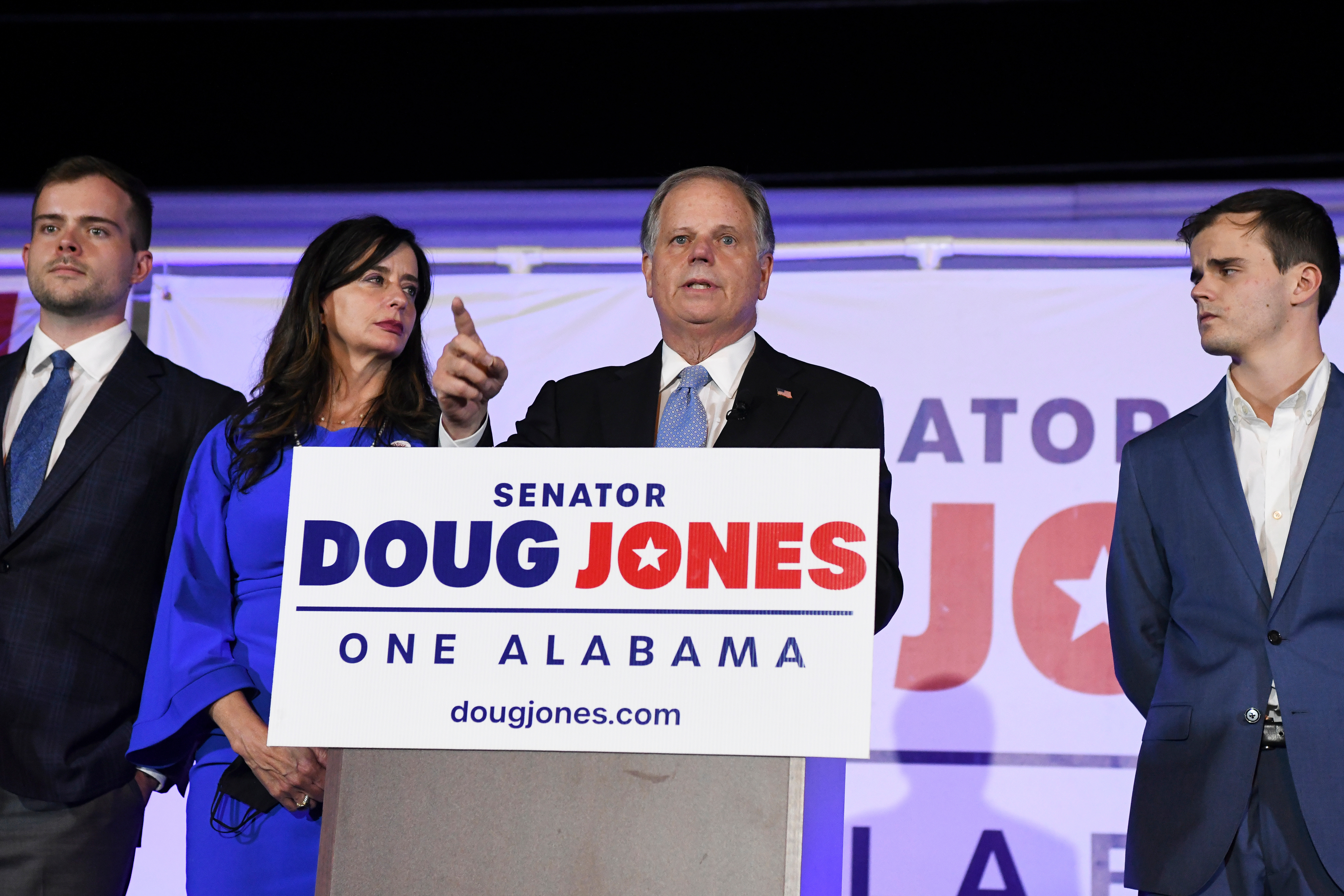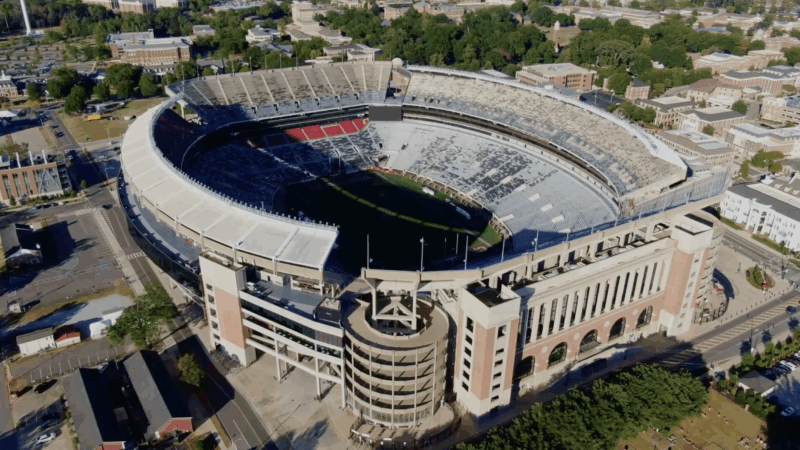Bay St. Louis became the place to be after Hurricane Katrina — for those who can afford it
Twenty years ago, Hurricane Katrina destroyed much of the Gulf Coast, including parts of the railroad that Amtrak ran a commercial line on, connecting New Orleans to Mobile, Alabama.
In mid-August, Amtrak resurrected this route — now dubbed the Mardi Gras Service. The Gulf States Newsroom’s Stephan Bisaha took part in the route’s inaugural trip.
Along the ride, he visited three coastal Mississippi cities that the route makes stops at to tell the story of how Katrina changed the Gulf Coast, and how these towns have worked to rebuild over the past two decades.
For those looking to escape New Orleans for a day — or for retirement — they often take the hour drive to the small Mississippi coast town of Bay St. Louis.
Colorful bars line Beach Boulevard and overlook the marina stretching into the Gulf. A few blocks up, local art hangs on both gallery and cafe walls.
It’s all made more remarkable considering that 20 years ago, Hurricane Katrina made landfall just a few miles away in neighboring Waveland. The storm surge wiped Bay St. Louis away, leaving behind little other than sand, mud and sewage.
“It’s like a tsunami came and crushed our little town,” Jenise McCardell, the owner of Gallery 220 in Bay St. Louis, said.
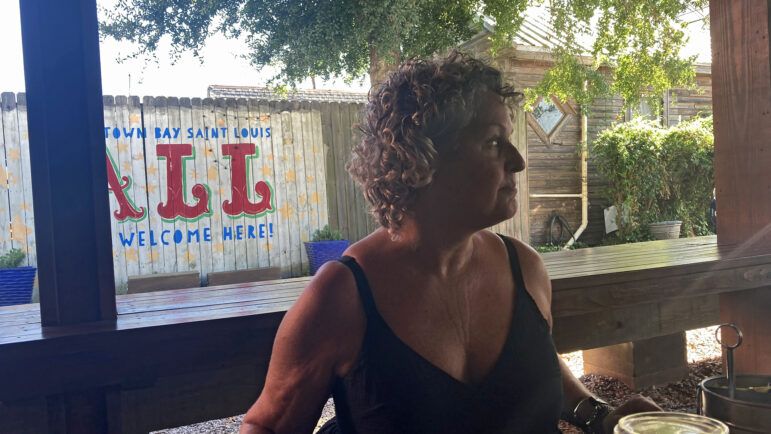
Bay St. Louis’ small-town vibes and oceanfront charm have brought back tourists and both new and former residents. But for all the celebration of the town’s recovery and growth, living here means staying in a town that is under threat of another future storm for half the year. Hurricane season is six months long.
The Mississippi paradise rebuilt, but with new costs for those who want entry — the emotional one that begins again each season and the literal cost of insuring a home in a place that’s already shown the impermanence of anything built so close to the coast.
Alicein Schwabacher drove 12 hours through evacuation traffic to Alabama to escape the storm. When she returned home, she came back to nothing — her house, her mother’s, her sister’s and their childhood home were all destroyed. A year later, she opened the Mockingbird Cafe in a building that was spared much of the flood damage as the waters were blocked by a concrete church.
The cafe became known as the town’s living room — a gathering spot during the long recovery. Customers would meet insurance agents and contractors at the cafe. Others would try to track down and return keepsakes tossed and carried away from destroyed homes.
Today, Schwabacher said Bay St. Louis is booming with hundreds of businesses opened since Katrina. And the Mockingbird Cafe has expanded, too. After Hurricane Zeta knocked down trees on the cafe’s north side, Schwabacher turned it into an outdoor space for both dining and watching live music.
“With all its growth, I think we’ve maintained our small-town charm,” Schwabacher said.
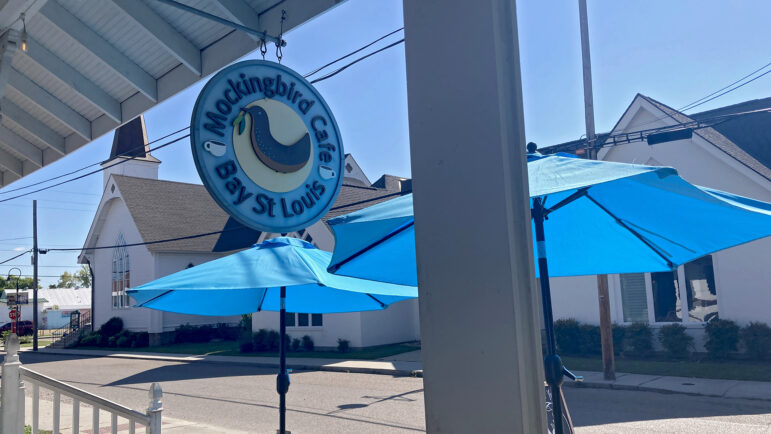
McCardell’s gallery reopened after just two months, long before much of the city. She started holding Second Saturday events, bringing bands, kegs and hot dogs for the community to get together, along with volunteers and military and medical personnel who helped in the storm’s aftermath.
Now, after 40 years, McCardell is retiring and selling her gallery. In the few months since going on the market, she’s received seven offers. With all the growth downtown, it’s rare to find property for sale.
But owning in Bay St. Louis means contending with insurance prices — that is, if you can find a company willing to provide it. For starters, it’s hard to find a company willing to provide a coverage policy. McCardell said insurers are picky, leading most people to self-insure, meaning they expect to dip into their own savings if another storm comes through — like she does.
McCardell said that for many people, this prices them out of living in the coastal town.
“Which is wrong,” McCardell said. “Because we should have everybody. That’s what makes a cool town — all kinds of people.”
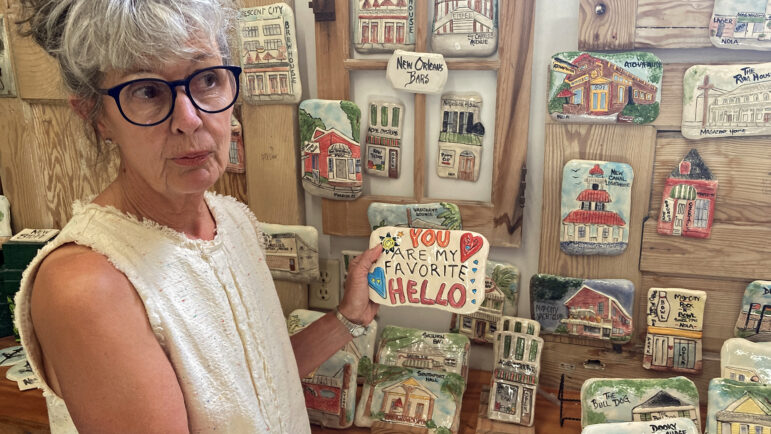
This story was produced by the Gulf States Newsroom, a collaboration between Mississippi Public Broadcasting, WBHM in Alabama, WWNO and WRKF in Louisiana and NPR.
Auburn tabs USF’s Alex Golesh as its next coach, replacing Hugh Freeze on the Plains
The 41-year-old Golesh, who was born in Russia and moved to the United State at age 7, is signing a six-year contract that averages more than $7 million annually to replace Hugh Freeze. Freeze was fired in early November after failing to fix Auburn’s offensive issues in three seasons on the Plains.
Alabama Power seeks to delay rate hike for new gas plant amid outcry
The state’s largest utility has proposed delaying the rate increase from its purchase of a $622 million natural gas plant until 2028.
Former U.S. Sen. Doug Jones announces run for Alabama governor
Jones announced his campaign Monday afternoon, hours after filing campaign paperwork with the Secretary of State's Office. His gubernatorial bid could set up a rematch with U.S. Sen. Tommy Tuberville, the Republican who defeated Jones in 2020 and is now running for governor.
Scorching Saturdays: The rising heat threat inside football stadiums
Excessive heat and more frequent medical incidents in Southern college football stadiums could be a warning sign for universities across the country.
The Gulf States Newsroom is hiring an Audio Editor
The Gulf States Newsroom is hiring an Audio Editor to join our award-winning team covering important regional stories across Mississippi, Alabama and Louisiana.
Judge orders new Alabama Senate map after ruling found racial gerrymandering
U.S. District Judge Anna Manasco, appointed by President Donald Trump during his first term, issued the ruling Monday putting a new court-selected map in place for the 2026 and 2030 elections.

